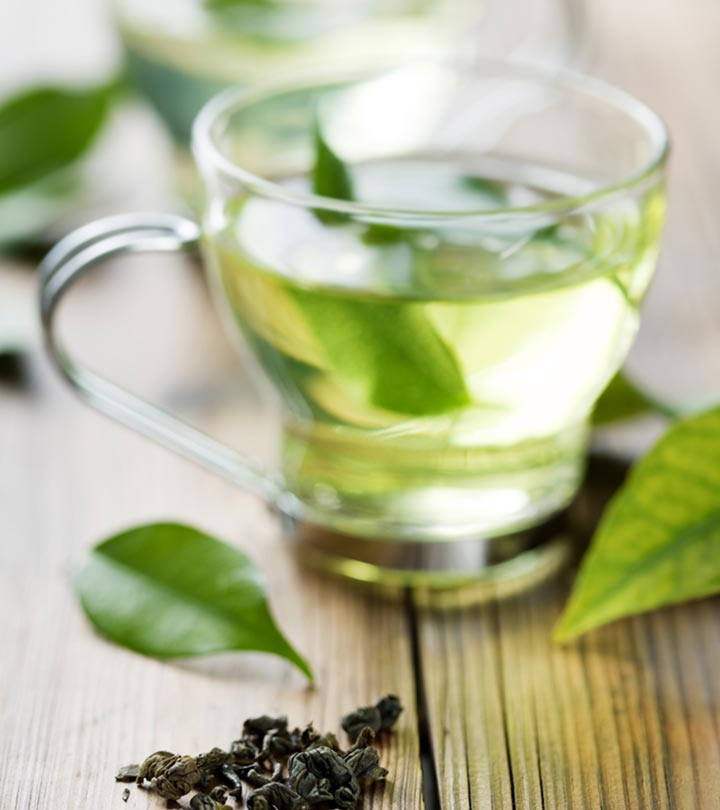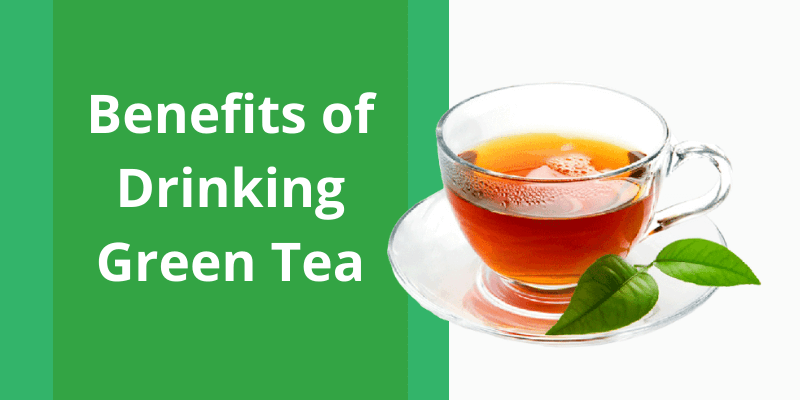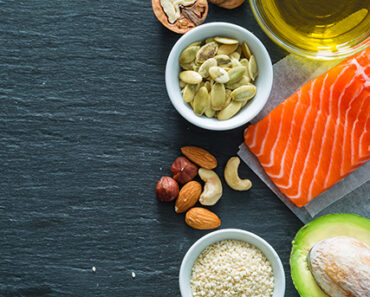Top 10 Benefits of Green Tea
Green tea is celebrated for its potential weight loss benefits, thanks to its ability to boost metabolism, increase fat burning, and enhance overall health. Here’s a simple guide on how to incorporate green tea into your diet if you’re looking to lose weight:
1. Understanding the Benefits of Green Tea
- Metabolism Boost: Green tea contains catechins, a type of antioxidant that studies suggest can help burn fat and enhance metabolic rate.
- Calorie Burning: The caffeine in green tea may help increase the amount of energy your body uses, allowing you to burn more calories.
- Fat Oxidation: It can enhance fat oxidation, meaning it helps your body break down fats more effectively.
- Hydration: Substituting sugary drinks with green tea can reduce calorie intake and provide a hydrating, low-calorie alternative.
Table of Contents
2. How to Use Green Tea for Weight Loss
Optimal Consumption
- Frequency: Drink 3-5 cups of green tea per day to maximize the health benefits, including weight loss.
- Best Time to Drink: Have green tea between meals to maximize your metabolism. Avoid drinking it too late in the day as it might affect your sleep due to its caffeine content.
Brewing the Perfect Cup
- Tea Selection: Choose high-quality green tea leaves or bags. Organic varieties may have higher nutrient levels.
- Water Temperature: Brew green tea with hot water between 160°F to 180°F. Boiling water can make the tea taste bitter.
- Steeping Time: Steep for 2-3 minutes. Longer steeping can release more catechins, but it might make the tea taste more bitter.
3. Dietary Integration
Meal Planning
- With Meals: Drinking green tea with meals can help increase satiety and control appetite, though some studies suggest it’s better to drink it before or after meals to maximize absorption of nutrients like iron.
- Snack Replacement: Replace high-calorie snacks with a cup of green tea to reduce hunger pangs and calorie intake.
Recipes
- Green Tea Smoothie: Blend brewed green tea, a handful of spinach, a green apple, and a banana for a nutritious start to your day.
- Iced Green Tea: Brew green tea and let it chill. Add lemon and a few mint leaves for a refreshing drink.
4. Considerations
- Caffeine Sensitivity: Be aware of your caffeine intake; too much caffeine can lead to nervousness, insomnia, nausea, or increased heart rate.
- Additives: Avoid adding sugar or creamers as these add calories and reduce the effectiveness of green tea for weight loss.
- Quality Matters: The effectiveness of green tea for health benefits, including weight loss, might depend on the quality of the tea.
5. Sustainability and Lifestyle
- Long-Term Use: Green tea is best used as part of a consistent, balanced diet and healthy lifestyle for sustained weight loss.
- Complementary Practices: Combine your green tea consumption with a healthy diet and regular exercise to maximize weight loss.
Incorporating green tea into your diet can be a pleasant and effective way to enhance weight loss efforts. Always consider your health condition and preferences when adjusting your diet and consult with a healthcare provider if you have any health issues.
6. Exercise and Green Tea
Incorporating green tea as part of a broader weight loss strategy that includes exercise can enhance fat burning and improve physical performance:
Pre-Workout Boost
- Energy Levels: The caffeine in green tea acts as a natural stimulant that can increase your energy levels, making it a great pre-workout drink.
- Fat Burning: Drinking green tea before exercising may boost fat oxidation during aerobic exercise, according to some studies.
Post-Workout Recovery
- Antioxidants: The antioxidants in green tea can help reduce oxidative stress caused by exercise, aiding in quicker muscle recovery.
- Hydration: Green tea can serve as a post-workout hydrating drink, especially if served cold.
7. Additional Health Benefits
Beyond weight loss, green tea offers several other health benefits that can support a healthy lifestyle:
- Heart Health: Regular green tea consumption has been linked to reduced risks of cardiovascular diseases.
- Blood Sugar Control: It can help regulate glucose levels, reducing spikes in blood sugar after meals.
- Cancer Prevention: The antioxidants found in green tea, particularly epigallocatechin gallate (EGCG), have been studied for their potential to reduce the risk of various cancers.
- Improved Brain Function: Caffeine and amino acid L-theanine in green tea can synergistically improve brain function and help maintain cognitive faculties as you age.
8. Incorporating Green Tea in Your Daily Routine
To make green tea a habitual part of your diet, consider the following tips:
Creating a Routine
- Morning Ritual: Start your day with a cup of green tea instead of coffee for a gentle caffeine boost.
- Mindful Breaks: Replace mid-morning or mid-afternoon snacks with green tea to reduce calorie intake and boost metabolism.
Travel and Work
- On-the-Go: Bring green tea bags or a thermos of brewed green tea to work or when traveling to stick to your health goals.
- Eating Out: Opt for green tea as a drink choice when dining out to continue enjoying its health benefits and to avoid sugary or alcoholic beverages.
9. Potential Side Effects
While green tea is safe for most people, some may experience side effects, particularly when consumed in large amounts:

- Digestive Issues: High quantities of green tea can lead to stomach upset or constipation due to its tannin content.
- Iron Absorption: Tannins in green tea can inhibit the absorption of iron from food. It’s advisable to drink green tea between meals to minimize this effect.
- Pregnancy Concerns: Pregnant or breastfeeding women should limit their caffeine intake and may need to moderate their green tea consumption accordingly.
10. Supporting Weight Loss with Other Herbal Teas
While green tea is often the go-to for weight loss and health benefits, other herbal teas can also play supportive roles in a weight loss regimen. Each type of tea offers unique benefits, from boosting metabolism to reducing appetite. Here are some excellent herbal teas that you can include in your diet to help with weight loss:

1. Peppermint Tea
- Appetite Suppression: Peppermint tea can help soothe the stomach and may help to control appetite and cravings, which can be beneficial for weight loss.
- Digestive Aid: The relaxing properties of peppermint tea can help promote better digestion and alleviate bloating and other digestive issues.
2. Oolong Tea
- Metabolism Boosting: Oolong tea has been found to enhance metabolism and increase fat burning rates. It is partially oxidized, which gives it a unique flavor and a slightly different set of benefits than green tea.
- Fat Reduction: Regular consumption of oolong tea can help reduce body fat and prevent obesity, thanks to its ability to metabolize lipids.
3. Hibiscus Tea
- Lower Calorie Absorption: Hibiscus tea contains natural enzymes that can help decrease the absorption of carbohydrates and fats, thereby reducing their conversion into body fat.
- Blood Pressure and Cholesterol Management: This tea is also known for its benefits in lowering blood pressure and cholesterol levels, which are often concerns related to excess weight.
4. White Tea
- Natural Fat Burner: White tea is the least processed type and retains a high amount of antioxidants. It is particularly effective at breaking down fat cells and preventing the formation of new ones.
- Enhances Lipolysis: The catechins in white tea boost the body’s ability to metabolize fats, improving overall weight management.
5. Ginger Tea
- Increases Satiety: Ginger tea can help increase feelings of fullness and reduce feelings of hunger, which can help with portion control and avoiding overeating.
- Thermogenic Properties: It helps increase the body’s temperature, which can boost metabolism and calorie burning.
6. Rooibos Tea
- Stress Reduction: Stress can lead to weight gain, and rooibos tea is known for its calming properties that can help reduce stress and potentially lessen stress-induced eating.
- Improves Fat Metabolism: It is rich in aspalathin, a compound that research has shown can reduce stress hormones that trigger hunger and fat storage, particularly in the belly.
7. Yerba Mate
- Energy Booster: Yerba mate is renowned for its balanced boost to energy and mental focus, thanks to its moderate caffeine content.
- Enhanced Physical Performance: Consuming yerba mate can lead to increased reliance on fat for fuel during exercise. It’s also helpful in reducing appetite and boosting metabolism, which are beneficial for weight loss.
8. Dandelion Tea
- Diuretic Effects: Dandelion tea helps in reducing water weight. It is a natural diuretic, which helps the body shed excess fluid.
- Digestion and Bile Flow: It promotes digestion and the flow of bile, which helps to break down fats into fatty acids that the body can use.

How to Incorporate Herbal Teas into Your Diet
- Consistency is Key: Regular consumption is critical — aim to drink 3-5 cups of herbal tea per day.
- Brewing Techniques Matter: Each tea can have specific brewing times and water temperatures to maximize its health benefits. For instance, delicate teas like white tea should not be brewed with boiling water to prevent bitterness.
- Combine with a Healthy Diet: Herbal teas should complement a balanced diet and regular exercise for best results in weight loss.
Conclusion
Herbal teas can be a wonderful addition to a weight loss program, providing variety and numerous health benefits that support not only weight management but also overall health. As with any dietary change, consistency and balance are key, and it’s important to combine these teas with a healthy diet and lifestyle for the best results. Always consult with a healthcare provider before starting any new diet or exercise program, especially if you have existing health concerns.



